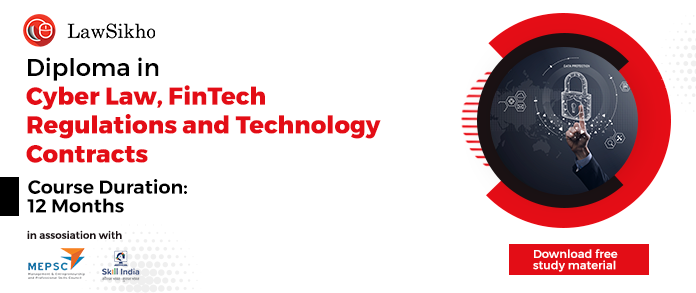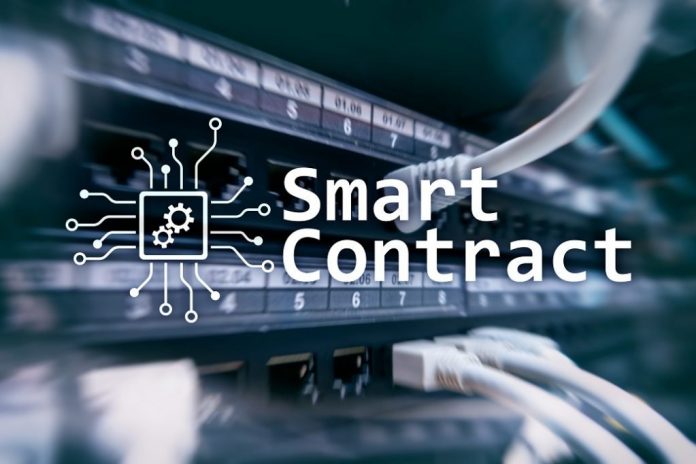This article is written by Neha Sharma, pursuing a Diploma in Advanced Contract Drafting, Negotiation and Dispute Resolution from LawSikho.
Table of Contents
Introduction
In recent years, over time the financial services and companies have evolved worldwide making their origins strong and fascinating. The individuals, as well as the companies, have been modernizing their traditional mode of financial deployment in digital form. The term “Fintech” that is evolving faster than any other industry, now wishes to take benefits by doing the digital transformations required to modernize the conventional structure of financial services.
During the pandemic i.e., the year 2020, “fintech” became crucial for business existence and acted as a primary enabler of the instant jump to digital payments at a time when consumers were circumstantially obliged to turn towards new transaction solutions when opening up their e-wallets. Along with that, another hyped-up area associated with the present-day fintech industry is the potential of “smart contracts”. These smart contracts are certain programmable contracts that automatically execute when predefined conditions are met.
In this article, we will explore the ultimate blend of smart contracts and financial services with worthwhile and agile technologies. It will also encapsulate a separate, term-by-term analysis of Fintech services and Smart Contracts (which operate using Blockchain technology) along with relevant examples. The article will also highlight the advantages and disadvantages associated with the usage of smart contracts in fintech industries.
What are Fintech services?
This term “FinTech” basically evolved when two sectors i.e., the financial sector and the technology Sector combined together to make financial services more efficient. So, in layman language, Fintech is nothing but the use of modern-day technology in the finance industry, and a “FinTech Company” is one which amalgamates technologies like artificial intelligence, blockchain, data science, etc. with the traditional financial domains with an aim to make them protected, speedy and more convenient. Under its umbrella, comes a wide range of business models, activities, products, and almost everything that counts from cashless payments to virtual currencies. For example, Apple Pay, Paytm, and every other mobile payment apps, Bitcoin, etc. In India, the Fintech industry is regulated by the central bank of India i.e., RBI.
Risks involved in the regulation of Fintech
Financial services are amongst the most profoundly regulated sectors in the world. For obvious reasons, regulation has emerged as the primary sphere of concern among authorities as fintech companies take off. When technology and financial services subsist together, regulatory problems for those fintech companies multiply. The major problems that are being observed are:
- Vulnerability to attacks from hackers: There have been several instances of hacking at credit card companies and banks, making headlines in newspapers, which are explicit examples of the ease with which hackers can gain access to systems and cause irretrievable damage. The primary questions that a consumer will raise in such circumstances is, who will be answerable for such attacks and who will stand up to take accountability for the abuse of personal information and essential financial data.
- Lack of Adequate Support and Guidance: Fintech in India is deprived of proper guidance and support from the government as well as the incentives for protecting their interests. This ultimately demoralizes the upcoming entrepreneurs.
Fintech’s most activities revolve around certain areas like Blockchain, Cryptocurrency, AI, and apart from these common areas, there is one more area that is a buzzword these days and that is “smart contracts”. Now comes the question: what does the term “smart contracts” mean? So now, in the next segment, it’s time to ‘get smart’ about the ‘smart contracts’.
What are smart contracts?
“Smart contracts” is one of the most hyped words being talked about by blockchain developers and FinTech masterminds. It combines two simple concepts into one amazingly multifaceted and powerful idea. The “smart” in smart contracts indicate the similar big leap forward that is intended when the term “smartphone” was conceived. The basic idea behind this comparison of the word ‘smart’ lies in the fact that, like the conventional phone was something that was impossible to be put in bags and carried along, now replacing them, came smartphones which offer, in entirety, all available human knowledge in the palm of a user’s hand. Similarly, a smart contract is ahead of a conventional contract.
A smart contract is a self-executing computer code that is openly viewable, tamper-proof, and assured to execute in a predictable manner. They represent an entirely different method of approaching contracts. Rather than having two parties sign identical copies of a paper agreement and mutually threaten one another with legal action if the other side doesn’t comply, smart contracts guarantee compliance using blockchain technology. In other words, once you “sign” a smart contract, there is no going back on your agreement. Smart contracts carry the capability to completely revolutionize almost every facet of commerce, industry, finance, and law. The way this technology works is what makes it such a versatile umpire of trust.
Key features of a smart contract
The three main features that all smart contracts must share are:
- Digital Signatures: Each party to a smart contract confirms their involvement in the contract by means of a cryptographic digital signature.
- Oracles: Mutually agreed-upon data sources notify the logic of the contract. Both parties rely on something to indicate whether the contract is to be fulfilled or not.
- Self-Execution: When the right conditions are met, the contract is capable of automatically fulfilling itself without requiring any further action on either party’s behalf.
By considering smart contracts through a reliable, decentralized digital source, people can transact nearly everything of value , from money to actions or even wagers , without worrying about whether the other party will hold its end of the deal.
All about smart contracts in the Fintech industry
Blockchain technology in fintech has numerous implications, and smart contracts are one of the most promising concepts. Smart contracts can possibly replace several intermediaries, including legal advisors, brokers, banks, etc. For example, while reading through the insurance claims, smart contracts carry out error checking, routing, and transfer payments to the user, if everything is found correct.
The fundamental underlying reason behind creating the concept of Smart Contracts is the exclusion of those hindrances which hamper the way of business growth. One such hindrance is a breach of Contracts and lack of enforceability or deferred enforceability by taking remedy of the several dispute resolution mechanisms. Since Smart Contracts do not need the parties to take help from any other alternative mechanism and instead can be implemented without the need of an intermediary, ultimately speeding the processes involved in performing financial transactions, they prove to be an appealing alternative to Traditional Contracts.

Validity of smart contracts in India
- Section 10 of the Indian Contract Act, 1872 states that “All agreements are contracts if they are made by the free consent of parties competent to contract, for a lawful consideration and with a lawful object, and are not hereby expressly declared to be void”.
- Moreover, Section 5 and Section 10 of the Information Technology Act, 2000 contemplate digital signatures and e-contracts as valid and enforceable under law.
- Along with that, Section 65B of the Indian Evidence Act, 1872 counts digitally signed documents admissible in the court of law.
- Example: In India, Bajaj Electricals is already using smart-contract blockchain technology to make payments to its vendors. And the RBI white paper on blockchain mentions that the smart contract technology has been installed on a pilot basis in various projects of the central banks.
Advantages of smart contracts in Fintech industry
As we know, a smart contract is a computer protocol envisioned to digitally expedite, validate, or implement the negotiation or performance of a contract. Smart contracts permit the performance of reliable transactions exclusive to third parties. The major advantages of smart contracts that have been observed for the FinTech Industry are:
- Trust: The data logged on the blockchain is defiant to changes. Thanks to the conclusiveness as for the interacting peers it’s nearly impossible to cheat.
- Convenient: Defiance to Changes permits keeping the record of each and every transaction that has ever occurred on the chain in chronological order. It can also help to double-check each and every transaction at any time.
- No intermediaries: Smart contracts eradicate several intermediaries involved in the financial ecosystem thus eliminating transaction costs, speeding up data transfers, and boosting data security.
Disadvantages or limitations of smart contracts
- Difficult to change: It is almost an impossible and never-ending job to change a smart contract or to edit it. Any fault in the code, causing the error can further be time-consuming and can involve high costs to correct.
- Probability of loopholes: As per the concept of good faith, parties will deal fairly and not get profits dishonestly from a contract. However, using smart contracts makes it challenging to ensure that the terms are met according to what was agreed upon.
- Third-party: Even though smart contracts seek to exclude third-party involvement, it is impossible to exclude them completely. Third parties undertake diverse roles from the ones they take in conventional contracts. For example, lawyers will not be desired to prepare individual contracts when there are smart contracts available; however, they will still be required by developers to understand the legal terms in order to create codes for the smart contracts.
- The limited vocabulary of a computer code: Contracting through a digital mechanism considerably decreases the chances of the parties to broadly define the scope and realm of the terms and conditions of a Contract. It is essentially the challenge of the limited, incomplete vocabulary of a computer code contrasted with the massive and extensive vocabulary of human languages, in this case, precisely the legal language, terminologies, jargon, etc.
Conclusion
FinTech doesn’t live at any definite place. At present, nobody can really comprehend what new fintech novelties are in the line, and this improbability is aggravated by the chaos caused by the Covid pandemic. It is clear from above that usage of Smart Contracts in the Fintech services have several advantages but they also have certain limitations and disadvantages.
So, until and unless the conspicuous grey areas in law are fulfilled, it is really imperative that there is a cautious use of Smart Contracts in the Financial Sector and other sectors as well. Ultimately, the bottom line is that, in order to eliminate the disadvantages completely, there should be an encouragement towards the ones who are well versed with the legal knowledge of contracts and finance law i.e., the lawyers, to stay up-to-date of the emerging technologies and also to have the bare minimum knowledge about the coding that goes into these digital contractual technologies to understand them better. This would safeguard better compliance, smooth functioning of the systems, more efficiency, and negligible breaches.
References
- Shilpa Mankar, Himanshu Malhotra, Vrinda Pareek, Fintech 2020 India, Global Legal Insights, Available at:
https://www.globallegalinsights.com/practice-areas/fintech-laws-and-regulations/india
- Sila Money, What Are Smart Contracts and How Do They Apply to FinTech?, Available at: https://silamoney.com/blockchain/what-are-smart-contracts-and-how-do-they-apply-to-fintech/
- Alok Vajpeyi, Gauri Bharti, Smart contracts: A Boon or a Bane?, Available at: https://www.mondaq.com/india/fin-tech/870846/smart-contracts-a-boon-or-a-bane
- Kostiantyn Didur, How to do FinTech and Blockchain Technology blend?, Available at: https://www.thedigitaltransformationpeople.com/channels/enabling-technologies/how-fintech-blockchain-technology-blend/
- https://silamoney.com/blockchain/what-are-smart-contracts-and-how-do-they-apply-to-fintech/
- https://www.mondaq.com/india/fin-tech/870846/smart-contracts-a-boon-or-a-bane
- https://www.thedigitaltransformationpeople.com/channels/enabling-technologies/how-fintech-blockchain-technology-blend/
Students of Lawsikho courses regularly produce writing assignments and work on practical exercises as a part of their coursework and develop themselves in real-life practical skill.
LawSikho has created a telegram group for exchanging legal knowledge, referrals, and various opportunities. You can click on this link and join:
https://t.me/joinchat/J_0YrBa4IBSHdpuTfQO_sA
Follow us on Instagram and subscribe to our YouTube channel for more amazing legal content.
 Serato DJ Crack 2025Serato DJ PRO Crack
Serato DJ Crack 2025Serato DJ PRO Crack










 Allow notifications
Allow notifications


